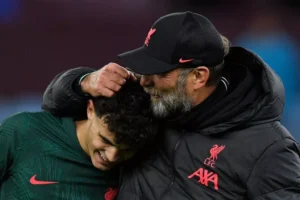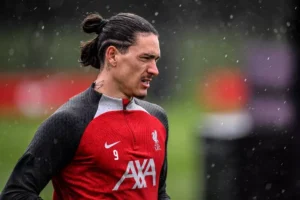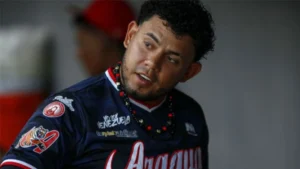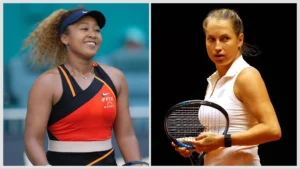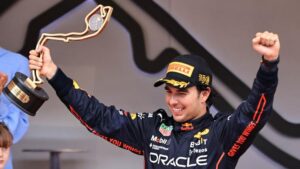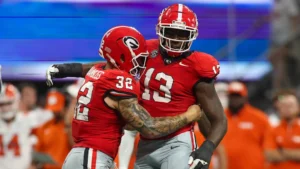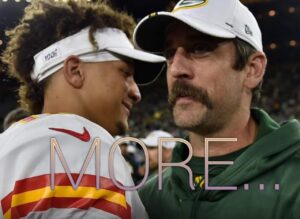Liverpool’s incredible fifth European Cup victory will be remembered and celebrated by fans for the rest of the club’s history.
The miraculous comeback from three goals down at halftime against a star-studded AC Milan side, the Reds regaining their crown as European Champions after a long 21-year wait, and Rafa Benitez’s side blunting Everton fans’ taunts about finishing above Liverpool and qualifying for the Champions League play-offs, to name a few.
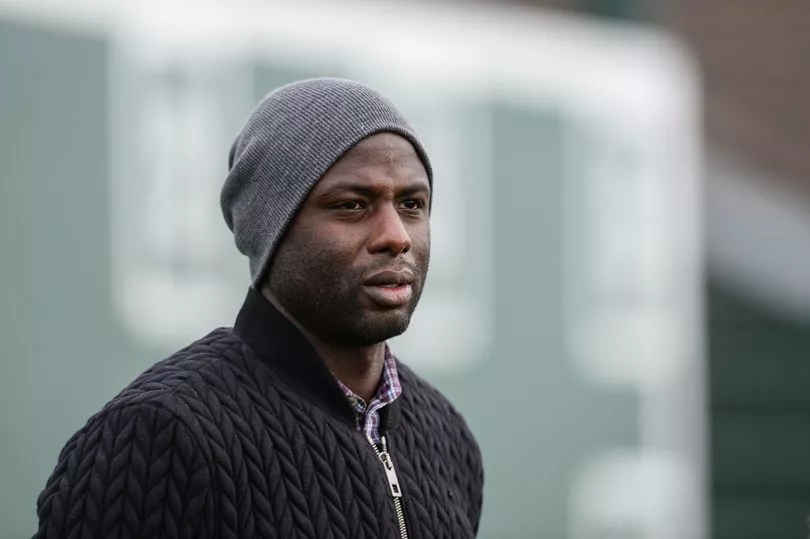
That redeeming component also applies to several of the Liverpool players who wrote themselves into history on that wild night in the Turkish capital. Nobody could ever credibly claim that the Reds’ 2005 season was among the club’s best in terms of ability – or even in the top ten – but the fact that such a limited squad was able to defy the odds and defeat a clearly superior outfit of proven winners only adds to the luster in the eyes of many.
As does the fact that several members of the squad who led the Reds to victory had long been written off as duds, including one much-maligned defender who had only months earlier become a figure of ridicule after a high-profile, hall-of-fame own goal but was picked up off the floor by an inspiring pep talk from a teammate who knew all too well how it felt to have your name become a punchline.
Djimi Traore, who turns 44 today, was only 18 when he arrived at Anfield in February 1999 as one of Gerard Houllier’s first signings as Liverpool manager. The Frenchman had only taken sole charge of the Reds three months earlier after initially joining the club in an ill-fated partnership alongside Boot Room stalwart Roy Evans, and he wasted little time in returning to his home country as he began his Anfield revolution, paying £1.5 million within weeks to rescue former Nantes The Reds manager prioritized defensive reinforcements, spending £700,000 on Lillestrøm’s giant Norwegian stopper Frode Kippe and using his knowledge as the French Football Federation’s technical director to sign Cameroon center-back Rigobert Song, who had previously played four seasons with Metz before moving to Salernitana in Italy.
Although Traore had only made a few appearances after breaking through at his local club, Stade Lavallois, the teenager – who could play both centre-half and left-back – had already piqued the interest of Paris St Germain, AC Milan, Parma, and Lazio, and Houllier wasted no time in securing a £550,000 deal to bring him to Merseyside as a future star, declaring to the Liverpool public via the press after the deal was completed: “You’ll thank me for signing him.” It would be the start of the following season before the manager felt he was ready for a first-team debut, and while the young defender started both legs of the Reds’ League Cup second-round tie with Hull City, those would be his only appearances until nearly a year later, on the first day of the 2000-01 season, when he started the first five Premier League matches at left-back.
It was the campaign that truly began Houllier’s reign in earnest, with his side winning an unprecedented cup Treble, but Traore’s youthful naivety was evident from those early-season games, inadvertently setting up Southampton’s Marian Pahars for the stoppage-time equaliser that earned the Saints a point after they had been three goals behind on Liverpool’s last-ever visit to the Dell, and soon after clumsily conceding a penalty to Alf-Inge Haaland (father of Erling), The young Frenchman made 12 appearances in total that season, none after late November, and returned to France the following summer on a season-long loan with Lens, where he gained valuable experience and nearly won the French championship alongside Senegal forward El-Hadji Diouf, who would join the Reds at the end of the season, a significant stage in his development.
“Before I joined Liverpool I had only played five games as a professional and that was in the second division in France,” he said. “I wasn’t well-known and had little professional experience; Liverpool was my learning experience, and it was at a high level, so it wasn’t simple. I had to play a year and a half in the reserves, where we won the championship and I was elected captain; wherever I’ve gone, people have claimed I’m a future star, but that has never stopped me from wanting to play sooner. At first, I was hesitant to come to Liverpool, but I heard there were some players like Rigobert Song and Jean-Michel Ferri who might take me under their wing, and the fact that the manager and his coaches are French impacted my decision. There were no regrets.
“I began off as an attacking midfielder at Laval and did well because I scored frequently and got forward a lot. However, after a while, I was relegated to a defensive duty due to my excessive possession of the ball. That’s what they told me. You see, my game was too similar to the football I used to play with my buddies in Paris, where we wouldn’t rush back after losing the ball. I like to play in the midst of the defence since that is where I learned my profession, but I’ve noticed that in France and England, people are more confident in a youngster who plays left-back rather than central defender.”
On his return to Anfield, Traore was forced into the first team and would start 45 of Liverpool’s 60 games that season, with an early season injury to Stephane Henchoz allowing the young Frenchman a chance in his chosen position of centre-back. However, it was the campaign in which Gerard Houllier’s rule began to wane following such promising beginnings. The manager had returned from his life-threatening heart problems towards the end of the previous campaign with his side in contention for both Premier League and Champions League silverware and, as he memorably put it, “10 games from greatness.” Although neither materialised, a modern-era record points tally (80) and league finish (2nd) fostered real belief that – with the right summer additions – the Reds could be in with a real shout of the top prizes next time ar
However, the decision not to make former Arsenal striker Nicolas Anelka’s loan permanent and instead sign Traore’s former Lens team-mate Diouf instead – along with two more acquisitions from the French league, Salif Diao and Bruno Cheyrou – highlighted how Houllier’s golden touch had begun to desert him since his illness. Although the Reds began the season well, leading and remaining unbeaten in the Premier League until early November, a defeat at Middlesbrough sparked an Three days later, Liverpool crashed out of the Champions League in the group stages after drawing a game at Swiss minnows FC Basel, which they had to win, and, although the League Cup was won the following March after victory in Cardiff over Manchester United (a match Traore was left on the bench for), defeat at Chelsea on the final day confirmed failure to even qualify for the following season’s Champions League, a deeply disappointing end to a campaign that had begun with
Traore would score his first Liverpool goal the following season – a superb strike in a rain-soaked UEFA Cup draw at Steaua Bucharest, when he received a short Steven Gerrard corner on the edge of the box and did well to keep his footing in the treacherous conditions before cutting on to his weaker right foot and curling an unstoppable drive into the bottom corner – but that was one of only 14 appearances he made in all competitions as he seemed to fall completely out of It was another season of gloomy decline, with Liverpool never getting close to a championship shot, losing domestic cups to lower-division Bolton Wanderers and Crystal Palace, and being knocked out of Europe by Marseille in the quarterfinals. The Reds did, however, finish fourth and qualify for the Champions League the following season, thanks to rivals Newcastle United squandering their advantage in the final weeks, but no one was surprised when Houllier’s five-and-a-half year reign came to an end, with Traore admitting he had lost faith in his former mentor and would have left if he had remained in charge.
He stated: “He was highly regarded by the English, and I can see why. However, many French players did not get the opportunity to participate and express themselves. We had to work twice as hard to play. I primarily played left-back, but that was not my position; center-back was. And when I played centre-back, I was usually next to Sami Hyypia, who disliked playing on the right. For a left-footed player, this is also difficult. In the end, I stopped trusting him. I was upset. I knocked on his door several times, expressing my desire to leave the club. It was annoying since I didn’t participate. But nothing changed. If he had stayed, I would not be in Liverpool anymore.”
Houllier’s replacement was Spanish coach Rafa Benitez, who had briefly challenged the dominance of Real Madrid and Barcelona in La Liga by leading Valencia to two league titles as well as lifting the previous season’s UEFA Cup, and, although he would quickly install Jamie Carragher as Hyypia’s center-back partner, Traore was very much back in the fold despite almost signing for Everton during the summer, and figured in 42 of the 60 matches Liverpool played in what was a sea After a poor start in the league, the Reds only won once away from home before January and were unable to catch up in the race for a Champions League position with rivals Everton, who finished three points ahead of them and in fourth place.
Benitez’s side would travel all the way to Cardiff in the League Cup, but they were unable to hold on to the early lead provided by John Arne Riise’s volley and Steven Gerrard’s 77th-minute own goal against the team to which he had been repeatedly linked with a move, and Chelsea would fight back to win 3-2 after extra time, having already exited the FA Cup at the first hurdle due to a moment that could have cruelly defined Traore’s career if he had allowed it. Drawn away in the third round to mid-table Championship side Burnley, Benitez rang the changes with youngsters David Raven, Zak Whitbread, John Welsh, and Darren Potter all given starts, but it was Traore – at nearly 25, one of the senior members of the team – who proved the inadvertent match-winner six minutes in the second half when, with the game goalless and under minimal pressure, he attempted to silkily turn with the ball when dealing with Richard Chaplow’s cross acr Such an embarrassing exit added to the pressure and scrutiny on Liverpool’s season, with the previous weekend’s home defeat to Manchester United leaving the Reds 21 points behind league leaders Chelsea, but Traore was buoyed by words of encouragement from a teammate who understood what he was going through.
